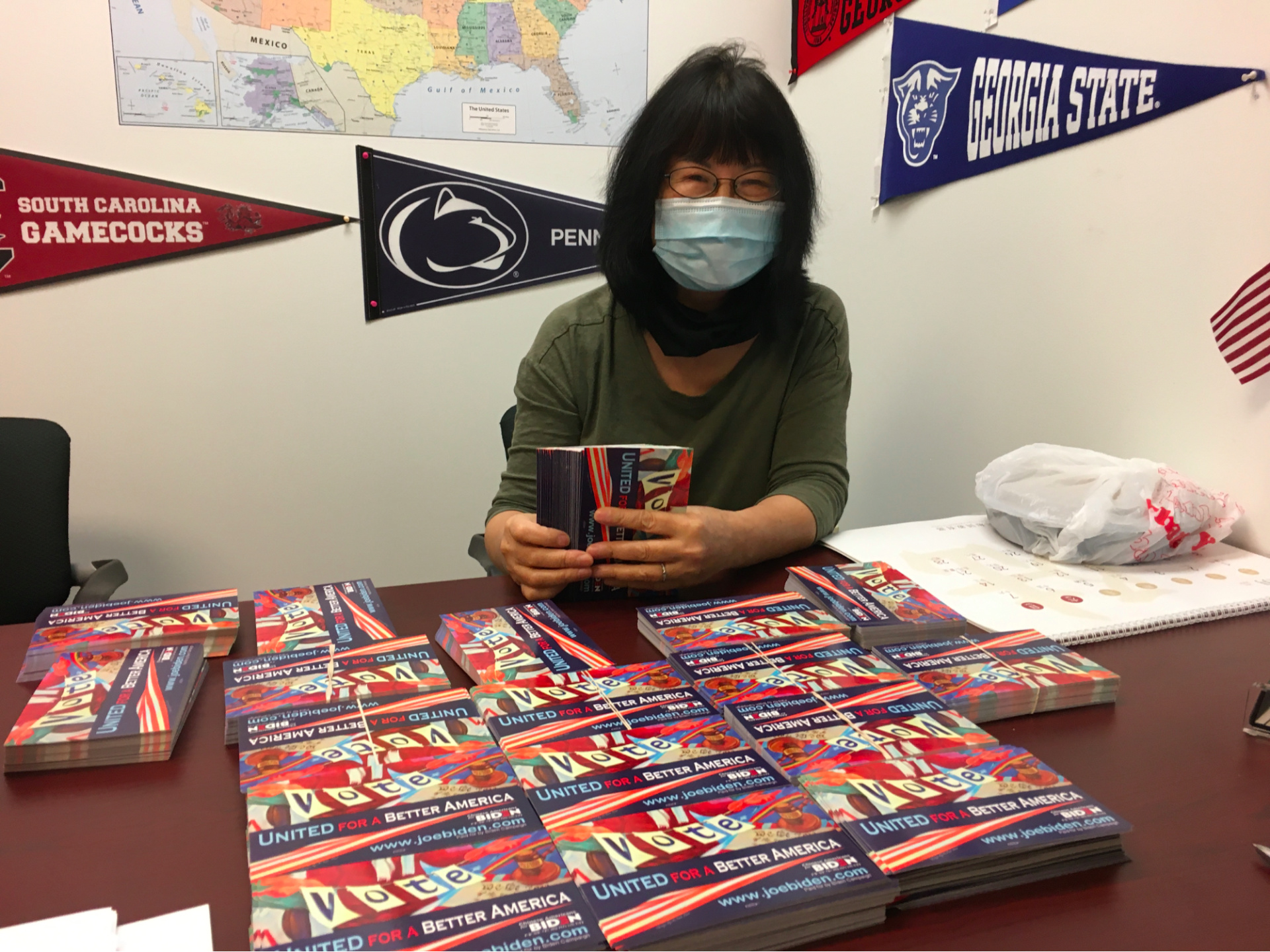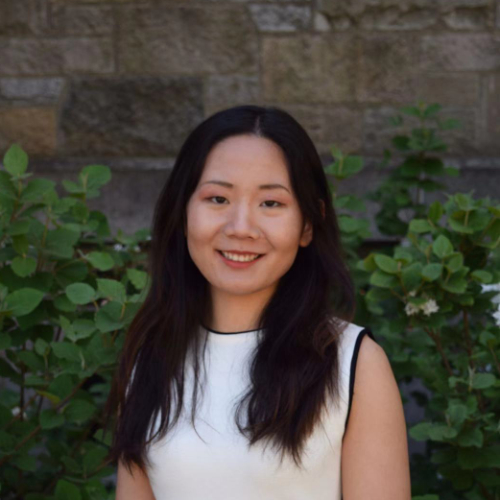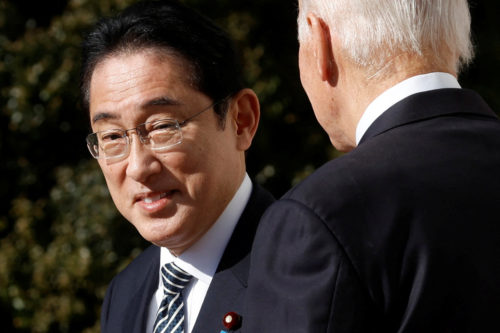How Chinese-American activism helped Georgia turn blue
Turnout among Asian Americans in Georgia was way up in the 2020 presidential election, meaning the Democratic-leaning demographic contributed to Biden’s win in the state. Chinese-American activists are now mobilizing again ahead of the January Senate runoffs.

In 2016, BiLan Liao moved from Kentucky to Gwinnett County, just northeast of Atlanta, Georgia. Having voted for Hillary Clinton that year, the 62-year-old Chinese immigrant, who came to the U.S. in 1999, was deeply worried about the “authoritarian style” of leadership that Trump has presented, which reminded her of the repressive ruling party in China. As the 2020 election rolled around, Liao, an artist and a retired art professor who likes documenting history through painting, thought it necessary to engage in politics to protect her freedom and vision for democracy.
“I came to America to pursue my dream,” Liao said. “He [Trump] will destroy my dream.”
Since then, she has become one of the activists most involved in mobilizing Chinese-American voters in Georgia to vote for Joe Biden. Liao proudly claims that she is causing “good trouble,” in the tradition of John Lewis, the late U.S. civil rights champion and longtime Georgia congressional representative.
As in many other key states this year, Asian-American voters, who tend to lean toward the Democratic Party, have made up an increasing share of Georgia’s electorate. Demographic data publisher AAPI Data has reported that from 2012 to 2018, eligible AAPI voters in Georgia grew 47%, compared with a 9% growth rate for the statewide eligible voting population during the same period. AAPI voters now constitute 4.7% of the state electorate. The Asian-American Legal Defense and Education Fund’s exit poll found that this year, 62% of Asian-American Georgian voters surveyed chose Biden, and 36% chose Trump. And an analysis by the Democratic firm TargetSmart indicated that Asian-American voter turnout in the state nearly doubled compared with that of the 2016 election, even as a New York Times analysis showed that the black share of the electorate declined in the state.
Asian-American voters, who tend to lean toward the Democratic Party, have made up an increasing share of Georgia’s electorate. Their voter turnout in the state nearly doubled compared to the 2016 election, even as the black share of the electorate declined in the state.
This is significant. Among many swing states in this year’s election, Georgia stood out, as President-elect Joe Biden leads over Trump by 12,284 votes after the recount, turning the state blue for the first time since Democratic candidate Bill Clinton carried it in 1992. Now Asian-American voters may continue playing a crucial role in the Peach State’s upcoming Senate runoffs in January, which will determine who controls the U.S. Senate when Biden starts his term in the White House.
Asian-American voters “played an important role in close races in several battleground states,” Asian-American Legal Defense and Education Fund (AALDEF) Executive Director Margaret Fung said in a press release, noting the significant role Asian-American voters have played in Pennsylvania, Georgia, Michigan, and Nevada in this year’s election. “Our voices must not be overlooked in the political process.”
Chinese Americans are one of the largest groups of Asian Americans in Georgia. The 2010 census showed ethnic Chinese as the third-largest group in the category “Asian,” but an AAPI Data report from 2018 indicates that the Chinese community has surpassed the Korean population to become the state’s second largest, behind only the Indian population.
Voting tutorials on WeChat
During Trump’s presidency, Liao started a habit of trying to counter right-wing narratives on WeChat, the Chinese social media app that has over 3 million active users in the U.S., most of whom are Chinese Americans. She was so vocal and, sometimes, unapologetic in voicing her disagreement that she was kicked out of all the conservative Chinese WeChat groups of which she had been a part.
Liao was not discouraged, and coordinated with a few other liberal contacts on WeChat to organize volunteer meetings. These started small, with just two people signing up for her first event, and the next virtual meeting attracted 10 people — but based on the feedback she received, Liao started her own WeChat group and created early voting video tutorials. She also reached out to individuals in her WeChat contact list and filmed their testimonials about why to support Biden. Her flurry of activity caught the eye of Ling Luo, the chairwoman for a national organization tied to the Biden campaign team, Chinese Americans for Biden (CAFB).
In late June, Luo asked Liao to lead the Georgia Chapter of CAFB. Liao was hesitant at first, but she eventually decided that Luo’s proposal for her to carry the banner of Georgia’s progressive Chinese-American coalition was an exhilarating prospect.
But having only lived in Georgia for a handful of years, Liao was starting as a one-woman team. Among the liberal Chinese-American voters she knew, few were willing to or had the time to advocate publicly for Biden. “Chinese Americans are all very scared of me,” Liao said, laughing. She said it was because they were wary of her level of activeness and passion for politics.
After becoming the chair of CAFB’s Georgia Chapter, Liao would wake up early to scour morning news on different channels, including Fox News, and design anti-Trump flyers based on the talking points she saw on TV that day. Her husband, Ken Scroggs, a psychologist and film enthusiast, helped check her English grammar for Facebook and Twitter posts, and filmed and photographed the three rallies Liao organized for Biden. Taking elements from her own painting, America Divided, Liao also designed postcards and flyers, and sent around 3,300 postcards with the help of her team in Georgia. Overall, Luo estimated that CAFB volunteers nationwide had hand-written and sent 45,000 cards to Chinese voters.

To help Liao jump-start her work, Luo introduced Liao to Lani Wong, an AAPI community leader in Georgia, who brought Liao into the AAPI leadership council of Georgia. Luo also sent volunteers from CAFB to assist Liao in writing postcards, doing phone and text banking, and disseminating information about Biden’s policies.
“She’s like a bull,” Luo said. “She just keeps running. And sometimes I have to stop her from running too fast or too much to get some rest.”
By early November, Liao had gathered a group of 70 volunteers to help her with organizing rallies and phone and text banking. In the last three days before the election, Liao and several of her team members spent six hours a day doing phone banking, calling over 1,500 people. On Election Day, they called another 1,200 people until late at night.
Liao cried when she heard that Biden had won. Her WeChat account shows pictures of the 66-year-old and her 72-year-old husband swinging on a rope in their backyard, laughing like two kids.
A registered Republican shows “some muscle” for the Democratic party
Yu Xiao, a Chinese immigrant who has lived in Atlanta since 1997, has been active in Georgia’s political scene since 2013. He explained that many liberal-leaning Chinese-American voters were reluctant to campaign publicly for Biden due to the overwhelmingly conservative political environment in Georgia. Before Liao, there had been one or two prominent Democratic Chinese-American organizers. But over the years, they had become less vocal.
At first, Xiao was unsure about Liao’s commitment as a newcomer. But after attending two of her rallies and witnessing the amount of enthusiasm she poured into the campaign, he said that Liao’s work had made an impressive impact in the community.
CAFB is not the only group in Georgia that works to sway Chinese-American votes. Xiao and his friend, Jian Ni, founded an organization called Chinese Americans for Political Participation (CAPP). They host webinars, film screenings, and discussion panels to educate voters about American politics. Both Xiao and Ni also supported the campaign of Michelle Au, a Democrat and 41-year-old Chinese-American anesthesiologist who is now en route to become the first Asian-American woman to serve as a state senator in Georgia.
As a longtime registered Republican, Xiao didn’t vote for Trump in either the 2016 or the 2020 election. “I know the greatness of the American democratic system,” Xiao said. “But I’ve also come to know that it’s fragile, that it can’t be guaranteed to choose the best president. It’s up to us to defend and maintain it… We Chinese people need to show some muscle.”
Now, having witnessed the considerable change they have made in the presidential election, progressive Chinese Georgians have readied themselves for another round of campaigning, to elect Jon Ossoff and Raphael Warnock into the U.S. Senate. Xiao has started a round of national fundraising, aiming to raise $50,000 for each candidate. Liao is busy convincing Chinese-American voters who had cast their votes in the general election to vote again in January, sending messages to WeChat groups to explain the two candidates’ policies and the importance of a Democrat-majority Senate. She also has made attempts to reach out to Georgians in China, and tried to help them sort out the bureaucratic logistics for them to cast a ballot in January.
“Just like it was important to knock on every door to correct the rejected ballots,” Liao said. “Every vote counts.”






